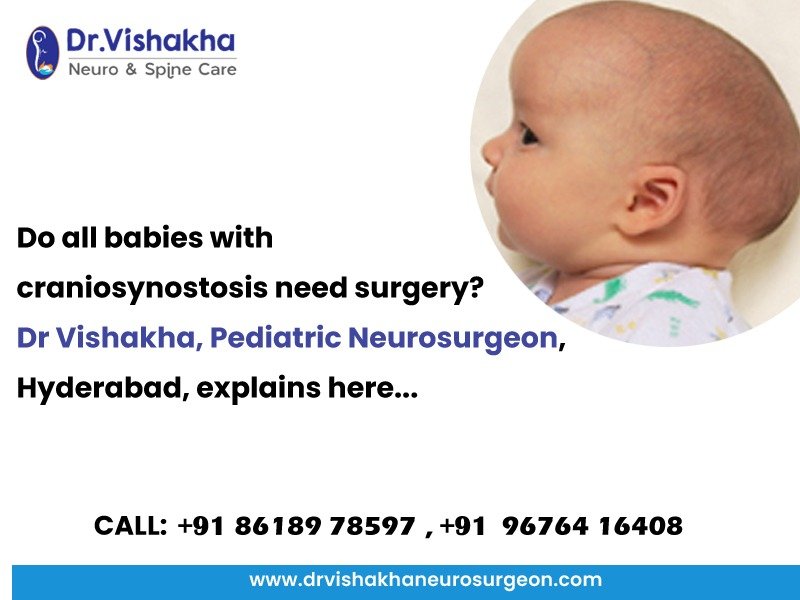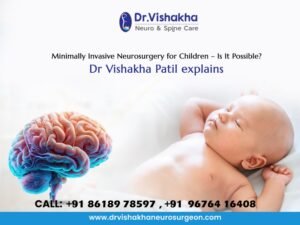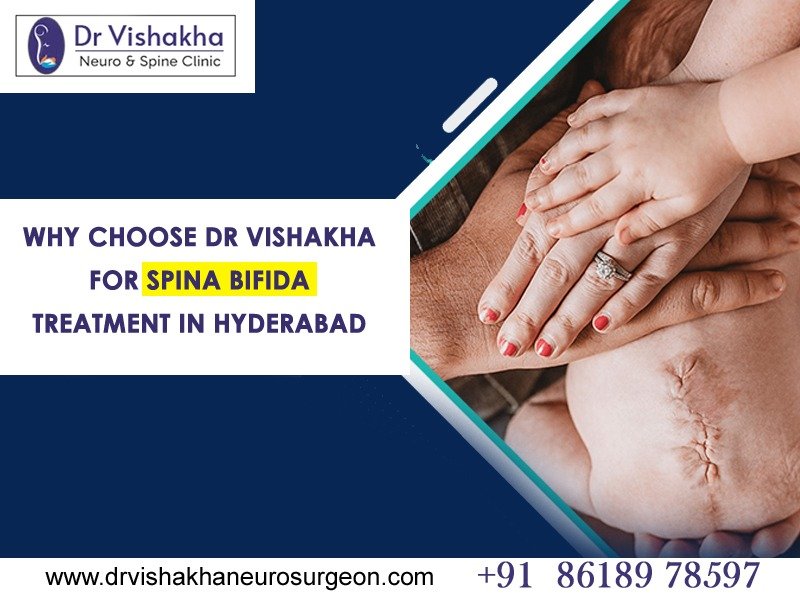As parents, one of the most worrying moments is noticing an unusual shape in your baby’s head. While some head shape changes are harmless and related to sleeping positions, others may be due to a condition called craniosynostosis. Understandably, many parents immediately worry, “Does my baby need surgery?”
Dr. Vishakha, the best Pediatric Neurosurgeon in Hyderabad, explains the condition in simple terms and guides you through the decision-making process.
What is Craniosynostosis?
Every baby’s skull is made up of several bones joined together by flexible seams called sutures. These sutures allow the skull to expand as the brain grows in the first years of life.
Craniosynostosis happens when one or more of these sutures close too early, before the brain has finished growing. This can lead to:
An abnormal head shape
Increased pressure inside the skull (in some cases)
Potential problems with vision, development, or learning if untreated
Do All Babies With Craniosynostosis Require Surgery?
Not always. The need for surgery depends on:
- Which suture is involved – Some sutures affect head growth more significantly than others.
- Severity of skull shape change – Mild cases may not interfere with brain growth and may only cause a cosmetic difference.
- Symptoms – If there are signs of increased intracranial pressure (irritability, vomiting, bulging fontanelle, delays in milestones), surgery is usually needed.
- Age of the baby – Early diagnosis provides more options for treatment.
Types of Craniosynostosis and Treatment Approach
- Single-suture craniosynostosis: Sometimes mild and may only need observation if brain growth is not affected
- Multiple-suture craniosynostosis: Almost always requires surgical intervention to give the brain space to grow.
- Syndromic craniosynostosis (part of genetic conditions): Needs a more complex plan with a team of specialists.
When is Surgery Recommended?
- Surgery is usually considered if:
- The skull deformity is severe
- There are signs of raised intracranial pressure
- There’s a risk of long-term developmental or visual problems
- Surgery aims to:
- Open the prematurely fused sutures
- Reshape the skull for normal growth
- Protect brain and eye development
What if Surgery is Not Needed?
For some babies, especially those with very mild forms, close monitoring with regular check-ups and imaging may be enough. Parents may be advised about safe sleeping positions, monitoring head growth, and developmental milestones.
Key Takeaway for Parents
Not every baby with craniosynostosis needs surgery. Some cases are mild and only need observation, while others require timely surgical correction to prevent complications.
Early consultation with a Pediatric Neurosurgeon is the most important step. With expert guidance, you can be sure your baby receives the right care at the right time.
Final Word from Dr. Vishakha
“If you suspect an unusual head shape in your baby, don’t panic. Seek medical advice early. With modern techniques and timely treatment, most children with craniosynostosis grow up healthy, active, and thriving.
About Dr Vishakha :
Dr Vishakha Basavraj Karpe is a highly skilled senior consultant at Rainbow Children’s Hospital in Banjara Hills and Hydernagar Hyderabad. She is known for her comprehensive care approach and is one of the few dedicated leading paediatric neurosurgeons in the city and India with over ten years of extensive experience in pediatric neurosurgery. Her expertise includes treating hydrocephalus, spinal dysraphism, craniosynostosis, paediatric brain infections, brain and spine tumours and stroke surgery. She has a special interest in craniosynostosis surgery, which is done only in very few centres in India. Call Dr Vishakha Patil on +91 9676416408 or visit https://drvishakhaneurosurgeon.com/
Proficiency of Dr Vishakha:
- Hydrocephalus (increased fluid in the brain): The procedure involves an endoscopic third ventriculostomy and CSF diversion (VP shunt) to treat complex hydrocephalus.
- Craniosynostosis (abnormal head shape due to premature cranial suture fusion) surgeries: Helmet therapy is a technique that is used in both endoscopic and open surgery.
- Spinal dysraphisms(Spina Bifida)- (spinal abnormalities present by birth) – surgical repair
- Encephalocele repair surgery.
- Vascular conditions and stroke surgeries: revascularisation surgeries for moyamoya disease.
- Pediatric brain and spine tumour surgeries.
- Pediatric brain and spine infection surgeries: Endoscopic and open surgeries for brain and spine infections.
- Pediatric traumatic brain and spinal injury.
- Antenatal counselling for congenital fatal neurosurgical conditions.





